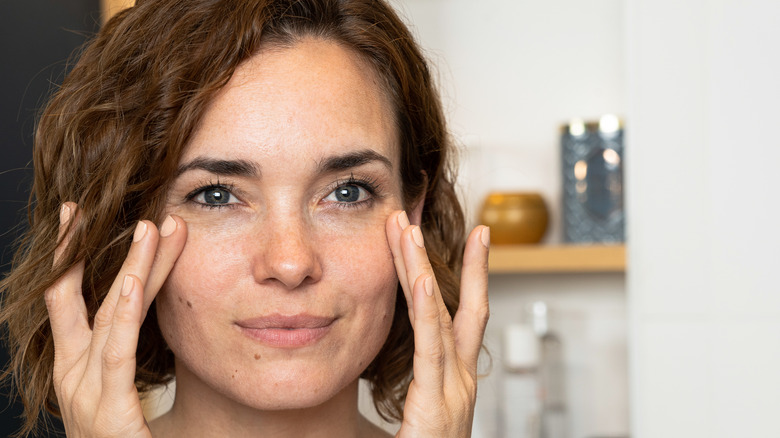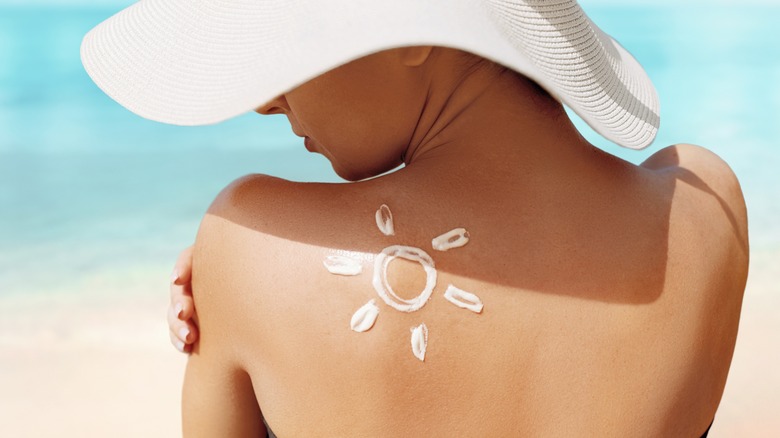Introducing Beta-Glucan, The Skincare Prebiotic That'll Bring Balance To Your Biome
Not a fan of barley? You may well become one: We predict you'll be considering smoothing a barley byproduct all over your face. And loving it.
Well, not just barley, but oats, yeast, seaweed, and three species of mushrooms, reishi, shiitake, and maitake. Beta-glucan is a dietary fiber derived from these plants' cell walls, and it's available in supplement form. The Journal of Nutrition and Metabolism published a study about the health benefits of beta-glucan on obesity and metabolic syndrome, which is a cluster of symptoms that raise a red flag about your increased risk for diabetes, heart disease, heart failure, and stroke.
Beta-glucan is anti-inflammatory, and when you have metabolic syndrome, your body is in a chronic state of inflammation. Beta-glucan helps regulate this syndrome, potentially lowering "bad" cholesterol, helping the immune system fight infections, and activating the soldier cells that kill cancer cells. As a prebiotic, it's a food source for your gut biome. And yet, it's made its way into skincare.
How beta-glucan is used in skincare
Some years ago, a clinical study published in the International Journal of Cosmetic Science evaluated the effect of beta-glucan on the skin, specifically to look at the penetration of oat into the epidermis. The study's authors wanted to determine if it had an effect on wrinkles.The researchers found that a beta-glucan solution penetrated abdominal skin past the epidermis down to the dermis. The next step was to evaluate beta-glucan on facial lines and wrinkles, and what they discovered "indicated a significant reduction of wrinkle depth and height, and overall roughness." Voila, here we are.
The other benefits to the skin: It's a humectant (a substance that absorbs water and helps retain moisture), and because of its anti-inflammatory and antioxidant properties, it can smooth redness and aid sensitive skin, protecting its barrier, and it can increase collagen production, which firms and tightens. Beta-glucan has been proven as an effective wound dressing, and another study published in the journal Molecules reports, "Beta-glucans can accelerate the wound healing process and inhibit the growth of pathogenic bacteria," which translates to powerful healing properties in everyday skincare.
Types of beauty products that use beta-glucan and takeaways
There are hydrating day creams (moisturizers) packed with SPF 30 broad spectrum sun protection, night creams that retain moisture, and reparative balms to soothe skin post-microdermabrasion or chemical treatments. There's beta-glucan in serums and mists that deliver proteins and antioxidants to the skin, another type of serum also used post-procedure to help rebuild the skin's barrier after a treatment, oat-based creams, and replenishment creams. If you experience chronic dryness or redness, these are likely signs that your skin needs barrier products.
Beta-glucan is being compared to hyaluronic acid, a different humectant because it too does a good job of plumping the skin and preserving moisture. Kami Parsa, M.D. tells InStyle that "beta-glucan actually outperforms hyaluronic acid by as much as twenty percent when it comes to hydration." If you do start using beta-glucan, your skincare routine probably doesn't need hyaluronic acid serum as a separate add-on.


